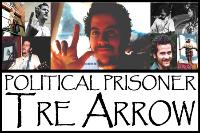Friday, September 22
Part III: Toronto Star Breaks Canadian Media Silence on North American Union
Editorial Note: On 19 September Canadian grassroots news service Vive le Canada confirmed documents were leaked to the organization detailing a secret September 12-14 meeting in Alberta among US, Canadian and Mexican planners for the North American Union. After posting copies on its website identifing by name current Canadian (and US and Mexican) officials meeting in Banff, the Toronto Star followed up with a story on 20 September.
Below is Maude Barlow's account in The Star; it is Canada's first mainstream media report on the secretive business-friendly plan ending the national sovereignty of the three countries, a plan garnering no input from their respective federal legislatures and judiciay.
A Question for Texans: Doesn't the Bush White House's proposed North American Union now explain its stubborn refusal to honor your requests to control the mass illegal immigrantion from Mexico?
--Moose
==
Getting closer to Uncle Sam
Public kept in dark as business leads talks about North American integration, By Maude Barlow
Sep. 20, 2006. 01:00 AM
While the media were busy obsessing over rumours of a budding romance between Condoleezza Rice and Peter MacKay last week, a more significant relationship was developing behind closed doors.
Away from the spotlight, from Sept. 12 to 14, in Banff Springs, Minister of Public Safety Stockwell Day and Defence Minister Gordon O'Connor met with U.S. and Mexican government officials and business leaders to discuss North American integration at the second North American Forum.
According to leaked documents, the guest list included such prominent figures as U.S. Defence Secretary Donald Rumsfeld, Mexican Secretary of Public Security Eduardo Medina Mora and Canadian Forces chief General Rick Hillier, although we have no final confirmation of attendees.
The event was chaired by former U.S. secretary of state George Schultz, former Alberta premier, Peter Lougheed and former Mexican finance minister Pedro Aspe.
Despite the involvement of senior North American politicians, organizers did not alert the media about the event. To make it worse, our government will not be issuing a public statement and refuses to release any information about the content of the discussions or the actors involved.
Day's office has been telling journalists that it cannot comment on the minister's private meeting and that journalists should understand this. So much for accountability.
The event was organized by the Canadian Council of Chief Executives — the elite club of Canada's richest CEOs — and the Canada West Foundation, an Alberta think-tank that promotes, among other things, closer economic integration with the United States.
The focus of the event was on North American security and prosperity. Not surprisingly, this included topics such as "A North American Energy Strategy," "Demographic and Social Dimensions of North American Integration" and "Opportunities for Security Co-operation" — all topics where the public interest is at odds with that of big business elites.
Unfortunately meetings like this are now commonplace.
Since Paul Martin, Vicente Fox and George W. Bush signed the Security and Prosperity Partnership in March 2005, discussions on continental integration have gone underground.
The media have paid little attention to this far-reaching agreement, so Canadians are unaware that a dozen working groups are currently "harmonizing" Canadian and U.S. regulations on everything from food to drugs to the environment and even more contentious issues like foreign policy.
Make no mistake, this process of harmonization is not about improving food, environmental and other norms; it is about priming North America for better business by weakening the impacts of such perceived obstacles as environmental standards and labour rights.
This is why the public has been kept in the dark while the business elite has played a leading role in designing the blueprint for this more integrated North America. In fact, they have been the driving force.
In June this year, their power was formalized when our governments created the North American Competitiveness Council (NACC), an advisory committee comprised of representatives from the largest corporations in North America including Wal-Mart, Chevron, General Motors, Lockheed Martin, Suncor and others.
Their goal is to make North America more competitive globally, which means weakening our government's ability to regulate industry, protect the environment or our social safety net.
Lockheed Martin's Ron Covais's statement to Maclean's magazine earlier this month about the role of the NACC was quite revealing:
"The guidance from the ministers was, tell us what we need to do and we'll make it happen."
Sadly, we the public are not informed of what big businesses are telling our ministers to do.
The NACC met in Washington on Aug. 15 to discuss its priorities, but we have very little information about what was said as it was not reported anywhere in the press.
For Canadians, developments on energy will be crucial.
The U.S. administration, anxious to keep up with its country's high energy demands, has shown great interest in this "secure" energy source located just north of its border. With corporations like Suncor involved, energy was an important item of discussion at the Banff meeting last week.
Given the detrimental impacts of oil sand extraction on our environment and given that Canada currently exports 66 per cent of its oil (primarily to the U.S.) while importing 55 per cent of what we use domestically from countries like Algeria, Venezuela and Norway, it is alarming that Ottawa would discuss a "North American Energy Strategy" with the U.S. and Mexico before establishing a Canadian strategy that would ensure our ability to protect the environment and ensure a secure energy supply for Canadians.
Though not as glamourous as the date between Peter and Condi, the media should pay better attention to this marriage between our governments and big corporations.
The Conservatives came to power on the promise to make government more accountable. They need to be reminded that our government should be accountable to the people of Canada — not just its business elite.
Maude Barlow is chairperson of the Council of Canadians and author of 15 books including Too Close for Comfort: Canada's Future within Fortress North America.
Below is Maude Barlow's account in The Star; it is Canada's first mainstream media report on the secretive business-friendly plan ending the national sovereignty of the three countries, a plan garnering no input from their respective federal legislatures and judiciay.
A Question for Texans: Doesn't the Bush White House's proposed North American Union now explain its stubborn refusal to honor your requests to control the mass illegal immigrantion from Mexico?
--Moose
==
Getting closer to Uncle Sam
Public kept in dark as business leads talks about North American integration, By Maude Barlow
Sep. 20, 2006. 01:00 AM
While the media were busy obsessing over rumours of a budding romance between Condoleezza Rice and Peter MacKay last week, a more significant relationship was developing behind closed doors.
Away from the spotlight, from Sept. 12 to 14, in Banff Springs, Minister of Public Safety Stockwell Day and Defence Minister Gordon O'Connor met with U.S. and Mexican government officials and business leaders to discuss North American integration at the second North American Forum.
According to leaked documents, the guest list included such prominent figures as U.S. Defence Secretary Donald Rumsfeld, Mexican Secretary of Public Security Eduardo Medina Mora and Canadian Forces chief General Rick Hillier, although we have no final confirmation of attendees.
The event was chaired by former U.S. secretary of state George Schultz, former Alberta premier, Peter Lougheed and former Mexican finance minister Pedro Aspe.
Despite the involvement of senior North American politicians, organizers did not alert the media about the event. To make it worse, our government will not be issuing a public statement and refuses to release any information about the content of the discussions or the actors involved.
Day's office has been telling journalists that it cannot comment on the minister's private meeting and that journalists should understand this. So much for accountability.
The event was organized by the Canadian Council of Chief Executives — the elite club of Canada's richest CEOs — and the Canada West Foundation, an Alberta think-tank that promotes, among other things, closer economic integration with the United States.
The focus of the event was on North American security and prosperity. Not surprisingly, this included topics such as "A North American Energy Strategy," "Demographic and Social Dimensions of North American Integration" and "Opportunities for Security Co-operation" — all topics where the public interest is at odds with that of big business elites.
Unfortunately meetings like this are now commonplace.
Since Paul Martin, Vicente Fox and George W. Bush signed the Security and Prosperity Partnership in March 2005, discussions on continental integration have gone underground.
The media have paid little attention to this far-reaching agreement, so Canadians are unaware that a dozen working groups are currently "harmonizing" Canadian and U.S. regulations on everything from food to drugs to the environment and even more contentious issues like foreign policy.
Make no mistake, this process of harmonization is not about improving food, environmental and other norms; it is about priming North America for better business by weakening the impacts of such perceived obstacles as environmental standards and labour rights.
This is why the public has been kept in the dark while the business elite has played a leading role in designing the blueprint for this more integrated North America. In fact, they have been the driving force.
In June this year, their power was formalized when our governments created the North American Competitiveness Council (NACC), an advisory committee comprised of representatives from the largest corporations in North America including Wal-Mart, Chevron, General Motors, Lockheed Martin, Suncor and others.
Their goal is to make North America more competitive globally, which means weakening our government's ability to regulate industry, protect the environment or our social safety net.
Lockheed Martin's Ron Covais's statement to Maclean's magazine earlier this month about the role of the NACC was quite revealing:
"The guidance from the ministers was, tell us what we need to do and we'll make it happen."
Sadly, we the public are not informed of what big businesses are telling our ministers to do.
The NACC met in Washington on Aug. 15 to discuss its priorities, but we have very little information about what was said as it was not reported anywhere in the press.
For Canadians, developments on energy will be crucial.
The U.S. administration, anxious to keep up with its country's high energy demands, has shown great interest in this "secure" energy source located just north of its border. With corporations like Suncor involved, energy was an important item of discussion at the Banff meeting last week.
Given the detrimental impacts of oil sand extraction on our environment and given that Canada currently exports 66 per cent of its oil (primarily to the U.S.) while importing 55 per cent of what we use domestically from countries like Algeria, Venezuela and Norway, it is alarming that Ottawa would discuss a "North American Energy Strategy" with the U.S. and Mexico before establishing a Canadian strategy that would ensure our ability to protect the environment and ensure a secure energy supply for Canadians.
Though not as glamourous as the date between Peter and Condi, the media should pay better attention to this marriage between our governments and big corporations.
The Conservatives came to power on the promise to make government more accountable. They need to be reminded that our government should be accountable to the people of Canada — not just its business elite.
Maude Barlow is chairperson of the Council of Canadians and author of 15 books including Too Close for Comfort: Canada's Future within Fortress North America.











